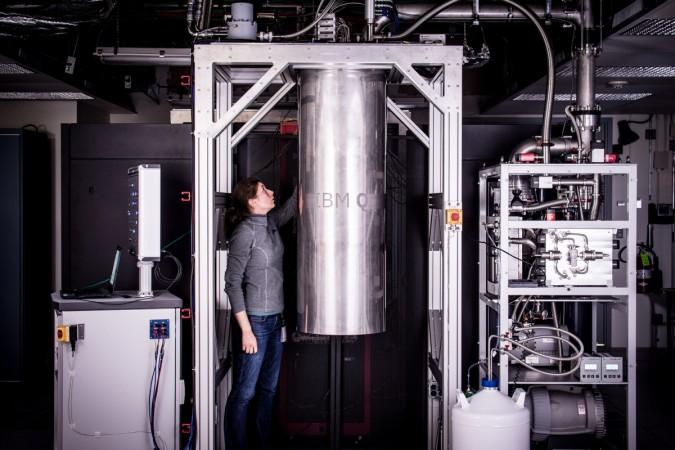
IBM, on Friday, announced a significant achievement in quantum computing which is considered to be a vital progress towards a more powerful way of processing information in the near future.
IBM, which is among many other tech giants racing to build practical quantum systems, said it had developed a quantum computer that can handle 50 quantum bits, or qubits. The company also announced the making if a 20-qubit quantum system, which is available through it cloud computing platform.
According to IBM, the first IBM Q systems with a 20-qubit processor will be made accessible online to clients by the end of 2017. The company also said that the new 50-qubit processor is the natural extension of the 20 qubit architecture, and will be made available in the next generation IBM Q systems.
In both 50- and 20-qubit systems, the researchers were able to preserve the quantum state for 90 microseconds. Despite being an extremely short period of time, it's still a new record for the industry as other quantum systems developed so far have comparatively limited capabilities.

Qubits are the basic units in quantum computing that hold bits of information. Unlike traditional computers that store information as either 1 or 0, qubits can be a combination of 0 and 1 at the same time. It's this ability of photons to exist in multiple states at any time that allows quantum computing perform operations much quicker than conventional machines.
"Now, we can scale IBM processors up to 50 qubits due to tremendous feats of science and engineering," Dario Gil, vice president of AI and IBM Q, IBM Research, said in a statement. "These latest advances show that we are quickly making quantum systems and tools available that could offer an advantage for tackling problems outside the realm of classical machines."
Friday's announcement came nearly six months after IBM's announcement in May that it had constructed a prototype commercial quantum processor with 17 qubits, which would be the basis for the first IBM Q early-access commercial systems.
Meanwhile, Google has also made some serious progress in the quantum computing over the last few years. The search giant recently teamed up with Volkswagon to use quantum computers and artificial intelligence to create better EV batteries.
In June, Google said that it was testing a 20-qubit quantum computing processor, and was aiming for a 49-quibt chip by the end of 2017.










!['Lip lock, pressure, pyaar': Vidya Balan- Pratik Gandhi shine in non-judgmental infidelity romcom Do Aur Do Pyaar [ Review]](https://data1.ibtimes.co.in/en/full/797104/lip-lock-pressure-pyaar-vidya-balan-pratik-gandhi-shine-non-judgmental-infidelity-romcom.jpg?w=220&h=138)






